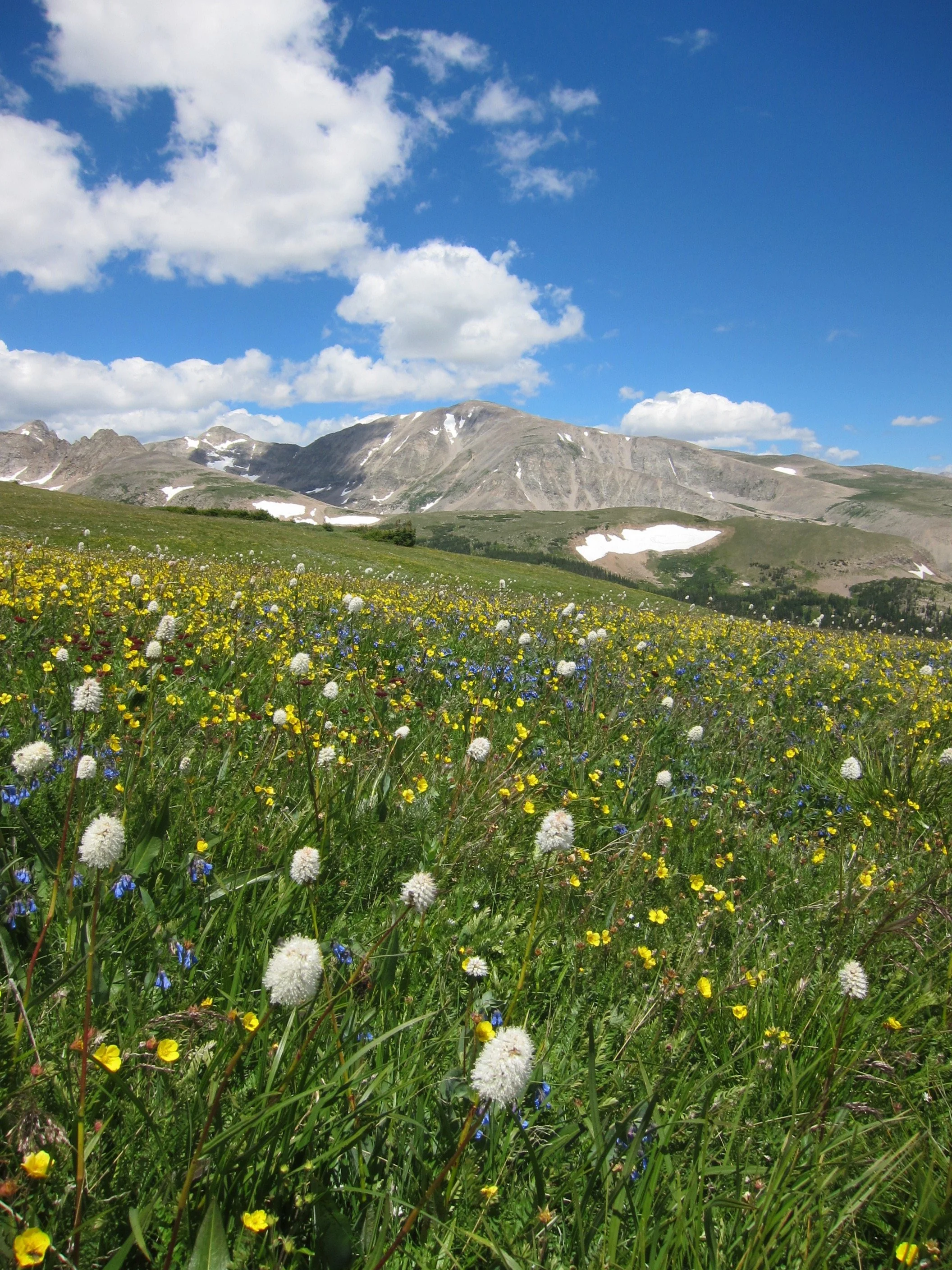Plant functional trait uncertainty can outweigh climate scenario uncertainty in tundra ecosystem productivity
Jay, K.R., Wieder, W.R., Elmendorf, S.C., Spasojevic, M.J., Suding, K.N...2025. Plant functional trait uncertainty can outweigh climate scenario uncertainty in tundra ecosystem productivity. New Phytologist. Available at https://doi.org/10.1111/nph.70740.
Moist meadow at Niwot Ridge. Photo credit: Jane Smith
Abstract
Predicting shifts in species composition with global change remains challenging, but plant functional traits provide a key link to scale from plant to community and ecosystem levels. The extent to which functional trait shifts may mediate ecosystem response to climate change remains a critical question. We ran point-scale Community Land Model (CLM) simulations with site-specific functional trait and phenology observations to represent alpine tundra growth strategies. We validated our results with site observations and compared parameterized results to those using the default parameterization. We then quantified the relative contribution of plant functional trait shifts vs climate change scenarios (and the resulting phenological shifts) to uncertainty in future tundra ecosystem productivity outcomes. We found that using community-specific functional traits and phenology observations significantly improved productivity estimates compared with overestimates in a default simulation. Uncertainty in potential plant trait shifts often had a larger effect on ecosystem productivity responses than uncertainty in the forced response from different climate change scenarios. These findings highlight the key role of functional traits in shaping vegetation responses to climate change and the value of incorporating site-level measurements into land models to more accurately forecast climate change impacts on ecosystem function.

